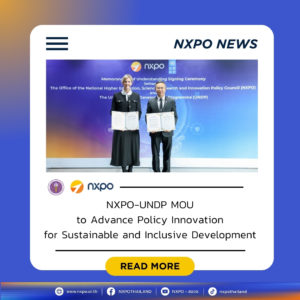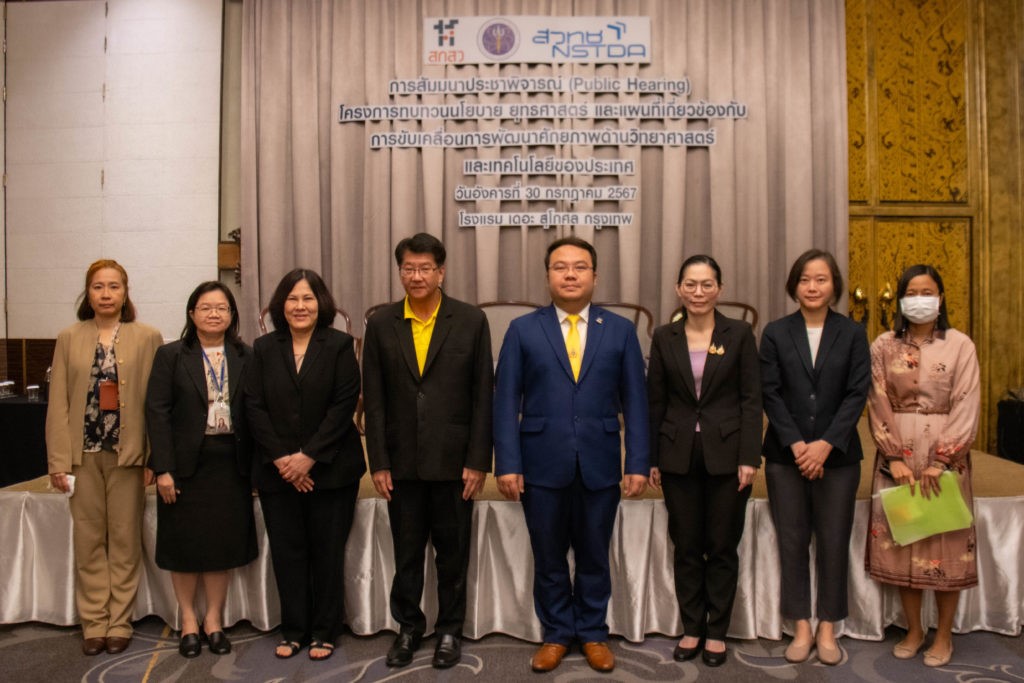
On 30 July 2024, Dr. Siriporn Pittayasophon, Senior Strategist and Acting President of NXPO, participated in a panel discussion on utilizing research results to enhance competitiveness and foster the innovation ecosystem in Thailand. The discussion was part of the public hearing organized by Thailand Science Research Innovation (TSRI) and the National Science and Technology Development Agency (NSTDA) to review Thailand’s science and technology policy, strategy and plan.
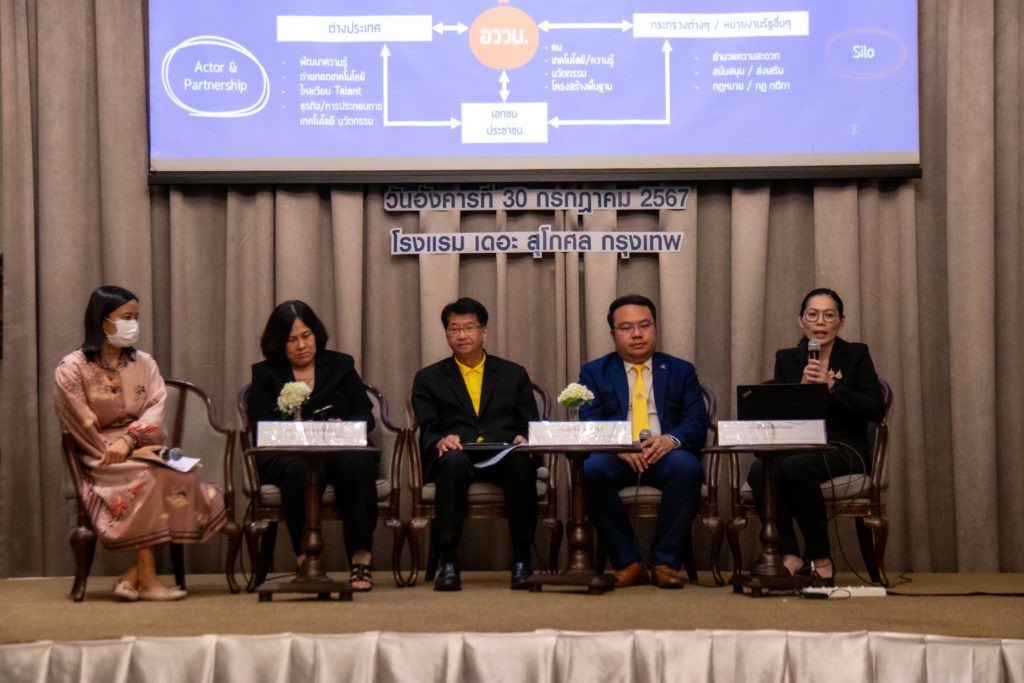
In her presentation, Dr. Siriporn highlighted that the goals of higher education, science, research, and innovation policy are to lead Thailand out of the middle-income trap, reduce inequality, and improve the quality of life for Thai people, transforming Thailand into a developed nation and sustainable society. Achieving these goals requires cooperation among government agencies, the private sector, the public, and international partners. This cooperation aims to enhance the country’s capacities, including developing high-quality human resources and world-class higher education and research institutions to address economic and social challenges. This involves employing a triple helix approach, fostering an innovation ecosystem, and developing innovation capacity. These efforts will lead to an increase in technology companies, improved income, enhanced quality of life, and sustainability in natural resources, the environment, and cultural heritage.
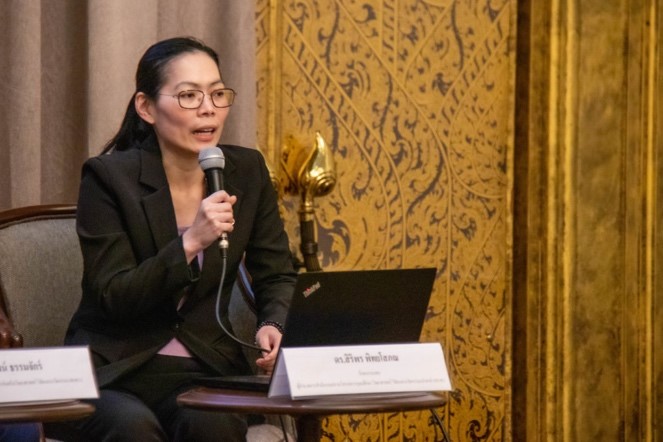
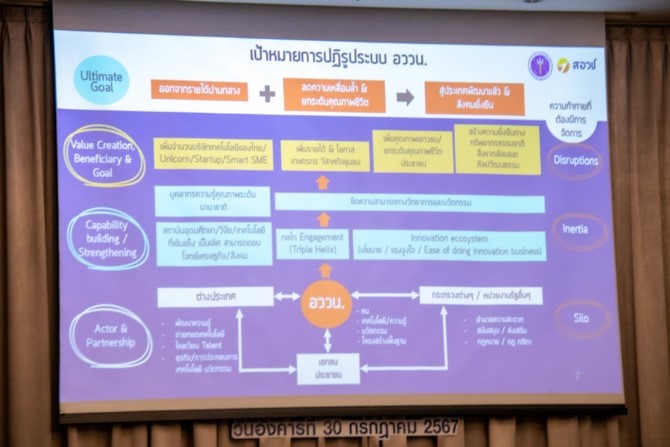
The 2023-2030 Higher Education, Science, Research and Innovation Policy and Strategy and the 2023-2030 Science, Research and Innovation Plan consist of 15 programs. One of the programs focuses on future food, addressing the production from upstream to downstream and gaps such as high production costs, inconsistent raw material quality and quantity, standards compliance of Thai food producers, and lengthy registration processes. Closing these gaps requires R&D in plant and animal breeding, production processes, post-harvest technology, competitive business models, as well as S&T and quality infrastructure for pilot production, product testing and certification.
Furthermore, Dr. Siriporn discussed the budget allocation for supporting the future food industry, with THB 10 billion dedicated to science and technology. Projects under the this program mostly focus on enterprise development. She suggested employing an agenda-based planning process, analyzing strengths and capabilities of players in the system, along with global trends, to prioritize focused issues. Establishing a consortium for information sharing and collaboration is also essential.
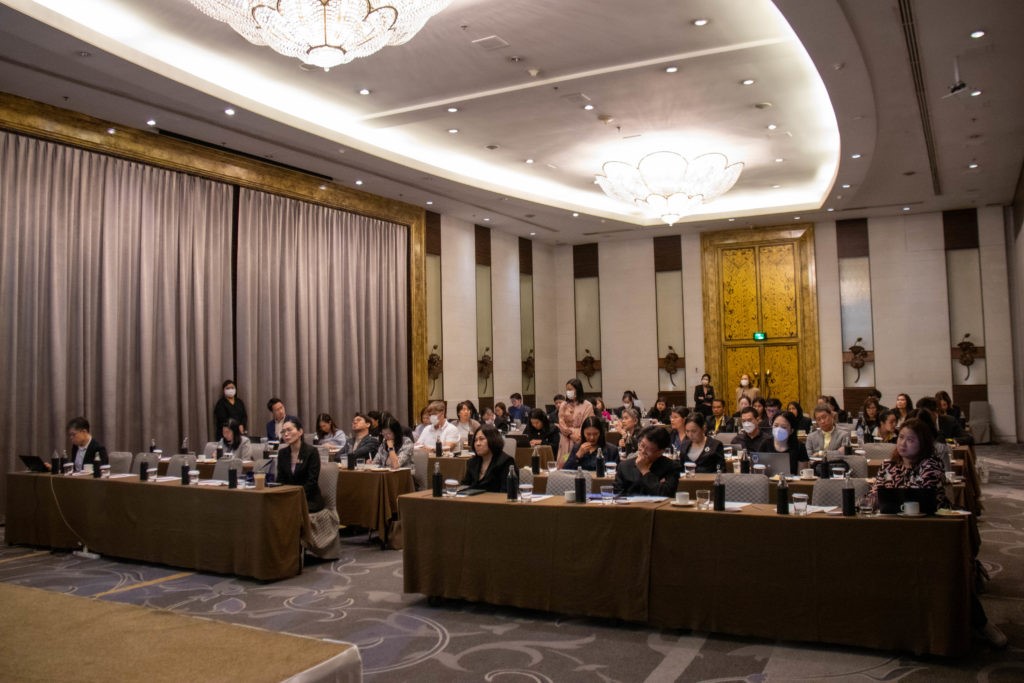
Dr. Siriporn also outlined measures for cultivating an innovation ecosystem, such as sandbox initiatives, which help unlock limitations in conducting research. As human resources are a critical factor attracting foreign investment, NXPO collaborated with the Office of the MHESI Permanent Secretary to implement incentive measures under the Thailand Plus Package, including the certification of training courses and STEM employment for corporate tax reductions through the STEM One-Stop Service (STEM OSS) center. Nationwide expansion of the STEM OSS (STEM One-Stop Service) centers is underway. The University Holding Company mechanism is another initiative that has been introduced to promote research commercialization. She concluded that these efforts collectively contribute to a dynamic innovation ecosystem that enhances technology development.


